With small steps, we can end the terror at home
The calculated and callous steps Rowan Baxter took to wipe out Hannah Clarke and her children makes his crime one of our most brutal, writes SHERELE MOODY.
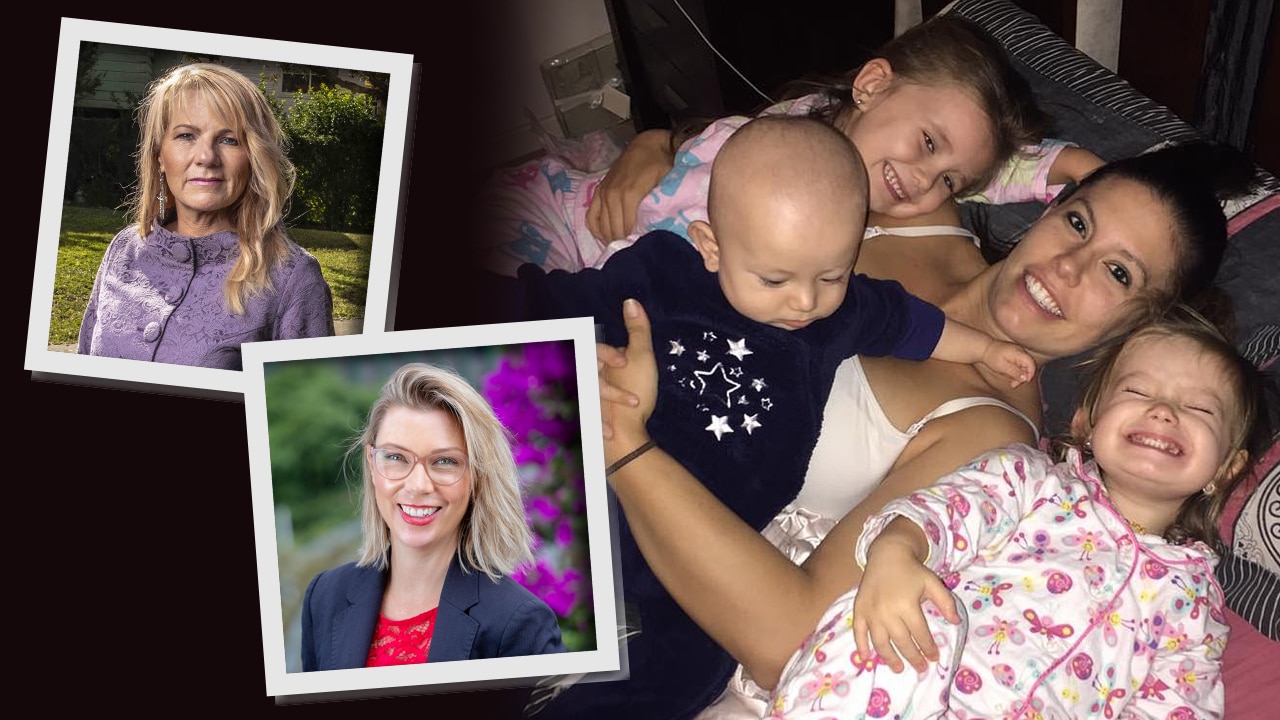
Sunshine Coast
Don't miss out on the headlines from Sunshine Coast. Followed categories will be added to My News.
Every murder is horrific, but the cold, calculated, chilling and callous steps Rowan Baxter took to wipe out Hannah Clarke and her children in Camp Hill this week makes this heinous crime one of the most brutal family massacres in Australia's history, writes SHERELE MOODY.
IN just a few months, Jonty Bush will commemorate the 20th anniversary of the violent killings of two of the closest people in her life.
Jonty's sister Jacinta was stabbed to death by Kris Slade in July 2000. Two months later their dad Robert was killed in an unrelated attack.
In the decades since Jonty's loved ones' deaths, at least 754 women and children have been killed as a result of domestic violence across Australia - 186 of those deaths happened in Queensland.
It's a tragic set of numbers the former Young Australian of the Year has worked tirelessly to reduce over the years.
On Wednesday, the aspiring politician was campaigning to win a seat on at the upcoming Brisbane City Council elections when she found out another four innocent lives would be added to Australia's toll of violence.
"My first reaction was shock," Jonty says of the murders of Hannah Clarke and her children Aaliyah, 6, Laianah, 4 and Trey, 3, who were brutally set upon by Rowan Baxter in Camp Hill.
"I won't say I was surprised because I'm no longer surprised by reports of domestic homicide given one woman dies every week in Australia."
Hannah's former partner - and father of the children - purchased a can of petrol, muscled his way into their car as they drove to school, doused the vehicle and its occupants with the fuel, lit a flame and let them burn.
He fought of those who tried to save the victims, ultimately ending his own life in the street, surrounded by shocked helpless onlookers and brave good Samaritans who, despite incredibly heroic efforts, had no hope of saving the mum and her little ones.
"This murder was particularly violent, and I know I'm not the only one who has had intrusive thoughts about what Hannah must have been going through, what the children must have gone through," Jonty says.
"When I speak with people about this incident, they inevitably shudder and say, 'I don't want to think about it' or 'let's not talk about it'.
"I say 'No. Let's think about it, let's put ourselves in Hannah's shoes, in Laianah, Aaliyah and Trey's shoes because we need to be moved into action.
"Change only happens when we become deeply uncomfortable with the status quo."
The killings of Hannah and the children bring to six the number of Queenslanders lost to alleged acts of domestic violence since January 1 this year.
No Queensland men had been killed as a result of domestic violence at the time of writing.
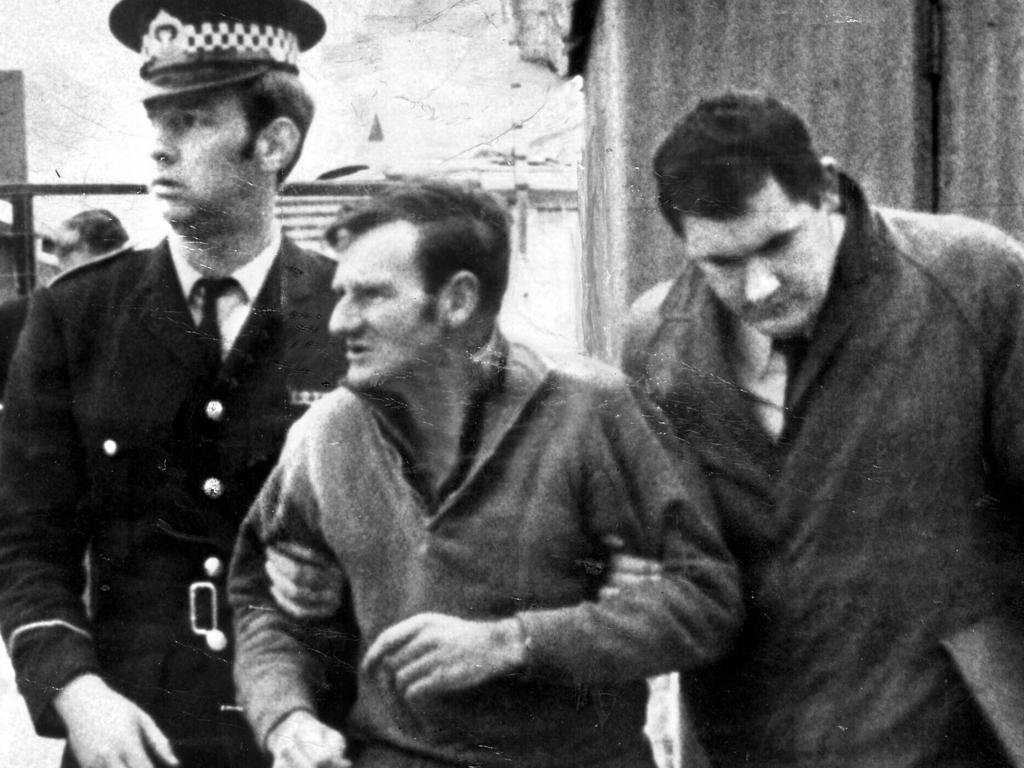
THE FAMILY MASSACRES THAT SHOCKED AUSTRALIA
I'VE been researching the violent killings of women and children across Australia for a while now.
Family massacres occur at an average of one per year - but there have been times where we have recorded multiple murderous sprees in a 12-month period.
The family massacre with the most victims was that of the Bartholomew murders committed in September of 1971 in South Australia.
Patriarch Clifford Cecil Bartholomew killed 10 kin - his wife, sister-in-law, nephew and his seven children.
Originally sentenced to death, Bartholomew's penalty was commuted to prison.
After serving just eight years, he was released from jail.
He quickly remarried and went on to raise another family.
"Poppy Cliff" - as he was known to his new family - died at the healthy old age of 72.
"Devoted to and sadly missed by children and grandchildren - rest in peace," his grave reads.
In 2018 we saw three families wiped out - Peter Miles murdered his wife Cynda, daughter Katrina and grandchildren Taye, Rylan, Ayre and Kayden at their home in Margaret River, WA before ending his own life; John Edwards killed his children and then himself in Sydney; and the courts are yet to deal with a third alleged offender who cannot be named for legal reasons.
There is no space here to provide an an exhaustive list of domestic violence massacres in Australia, but my study of more than 2000 femicide and child deaths clearly reveals familial killings are overwhelmingly perpetrated by men.
While it is rare, women have also wiped out families in our country and it would be wrong to shy away from this.
The worst of the female family killers is Raina Mersane Ina Thaiday who ended the lives of seven of her own children and also her niece in Cairns six years ago.
She was found to be suffering extreme mental health problems and remains in high-security ward in a forensic facility.
In March of 2005, Sally Elizabeth Winter shot to death her five-year-old daughter Kasey Rose, her four-year-old son Jake Aden and their father Stephen Anthony Winter, 34, at Oakhampton Heights in NSW.
Winter killed herself.
Domestic violence killings are the horrific outcome of a small number of cases of abuse in Australia.
We know this because police, coroner's court and Australian Bureau of Statistics data shows there are 10s of thousands of cases of non-lethal family violence occurring across the country each year.
In 2018-19 - for example - around 10,825 male domestic violence offenders were collared in Queensland compared to just 2308 female perpetrators.
Queensland police deal with around 267 domestic violence matters daily while nationally, officers handle around 660 cases every 24 hours.
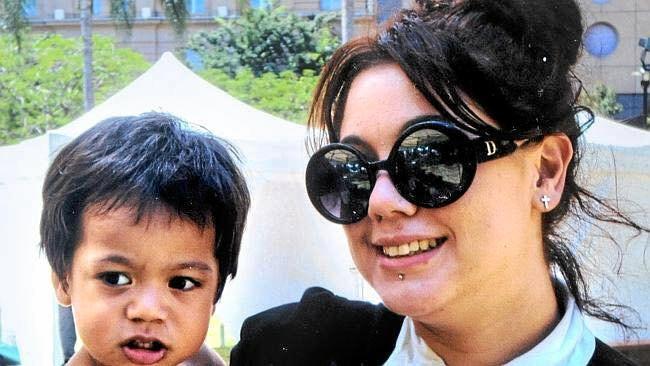
THE PEOPLE WHO BELIEVE THE MONSTER IS THE VICTIM
EVERY domestic violence death is brutal, but the cold, calculated and callous nature of Baxter's actions were among the worst this nation has seen.
Yet, not everyone considers Baxter to be the 'controlling and possessive monster' Hannah was trying to escape.
In the days after the deaths, a sickening wave of support for the killer emerged as hordes of social media users posted excuses and justifications for the his fatal actions.
"Women just push and push men until something like this happens," one bloke ranted on Facebook, completely disregarding the fact that Hannah endured ongoing abuse during her marriage, that Baxter continually harassed and stalked her, that he had kidnapped one of the children and that he was the subject of a domestic violence order that he breached.
"I don't condone what he did and it's such a tragic loss of three small children, but what did the wife do to get him to that point? People just don't do that out of the blue," another man claimed.
Victim-blaming is par for the course when men murder women and/or children, but there was one comment by a so-called father's rights activist that raised multiple red flags.
"You women were warned," the man - who has previously been kicked of Twitter and Facebook - opined.
"You brought this on yourselves. If you continue to support the criminal abuse of men in the divorce courts some men will kill their ex-wives and children. The blood of this man, woman and children is firmly on the hands of you women."
And it was not only men who are saying Hannah was to blame. Infamous sex therapist Bettina Arndt Tweeted about Baxter being "driven too far".
Long-time anti-violence fighter Sonia Anderson is frustrated by the victim-blaming - the kind of comments she had to field a decade ago when her own child was killed by an abusive partner.
She has been trying to get people to understand the complexities of family abuse since her daughter, Bianca Faith Girven, was strangled to death in 2010.
Bianca died a horrible and terrifying death at Mr Gravatt, where a memorial now stands in her honour.
Sonia says "every mum" who loses a child to domestic violence must endure the "good guy who snapped" trope - the belief that "non-abusive men" are "pushed" into violence by the actions of their former partners.
"Baxter is a perfect example of this - people are saying he loved his kids and he was great dad, but he was a bad man," Sonia says.
"By killing the children and their mother, he proved exactly why Hannah had to take such extreme steps to keep the kids away from him."
The 55-year-old says it is vital for our country's non-abusive men to be "outraged by these killings".
"I want them to understand it is not the woman's fault," she says.
"We need senior leaders from business, politics, sports and academia standing up and calling these blokes out.
"Things won't change until men call out other men for doing the wrong thing."
In an ideal world, Sonia believes all people would learn to successfully negotiate relationship breakdowns in a healthy and safe way
"I want to empower men who use violence to seek help and to know there are support services available for them," she says.
A frustrated and heart-broken Rosie Batty, whose son Luke was killed by his father at a Melbourne cricket ground in 2014, said everyone needed to realise family killings do not happen in a vacuum and that we must jettison the myth of the "good men who snap".
"No one is 'driven' to murder no matter the circumstances or situation that they find themselves in," Ms Batty says.
"Murder is a decision that is deliberate and driven by the need to exact revenge and achieve the ultimate act of power and control.
"Although mental health, drugs and alcohol can be contributing factors, violence is always a choice and one that we should not continue to make excuses for."
The public commentary has been so heated and volatile that Queensland's Minister for the Prevention of Domestic Violence - Di Farmer - also called for keyboard warriors to back off.
"I have been absolutely horrified to see some of the views expressed by some … that if women treated their men better then they wouldn't have to be hit," Ms Farmer said.
"These are not the views of a respectful society and unless we address that we can only get so far in tackling domestic violence.
"We have to call out domestic violence.
"We have to set a standard for the way we treat each other."
Detective Inspector Mark Thompson was subject to widespread criticism for a comment that many felt contributed to the victim-blaming, but was ultimately taken well out of context.
During a long press conference, the well-respected officer said the investigators would consider community commentary claiming Hannah "pushed" her former husband "too far".
He said officers were keeping an "open mind" about Baxter's motives.
He later clarified his stance, saying: "There is no excuse for perpetration of violence in our community, and there is certainly no excuse for perpetration of violence amongst families in behind closed doors."
Sadly the damage was done and as public sentiment imploded, Queensland Police Commissioner Katarina Carroll asked him to stand him aside from the investigation.
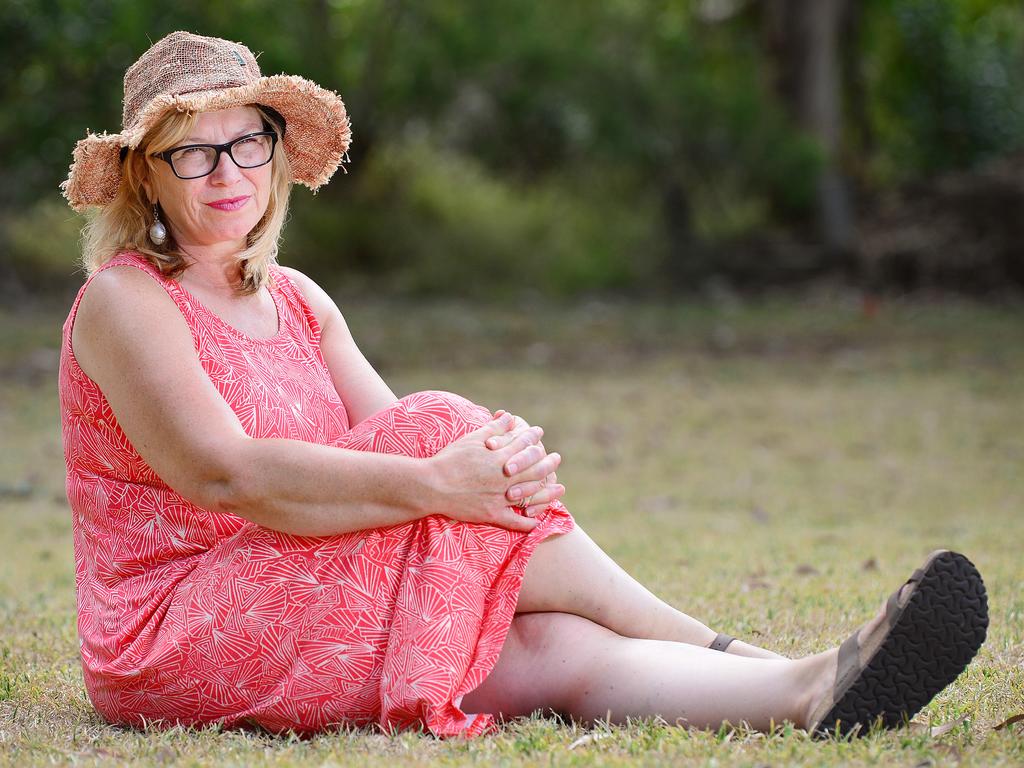
THE IMPACT ON FRONTLINE WORKERS
COMMISSIONER Carroll gave an insight into how police were affected by the murders.
"Even when I heard it, I had tears running down my face,'' she said before visiting Hannah's parents to update them on the investigation and pay her respects.
"What's so upsetting is the viciousness of the murder - the way it was done is incomprehensible."
The Brisbane Domestic Violence Service was supporting Hannah and her children in the months before their deaths and its staff were overwhelmed by grief.
"The loss of this young family to domestic and family violence has deeply affected all of us," BDVS wrote in a short statement on its Facebook page.
"We are constantly thinking of Hannah's loved ones."
Queensland's key support service for people in domestic violence crisis is DVConnect, which fielded around 200,000 calls for help in the past year.
Not surprisingly, the Camp Hill killings resulted in a huge influx of calls to the charity's Womensline and Mensline over the past few days.
"We have had calls from women who would not have contacted or thought their situation was as serious had they not seen the news (of the deaths)," CEO Rebecca O'Connor says.
"We have had individuals contact our Mensline and explicitly name the events of Wednesday as motivation to reach out for help.
"We strongly believe that violence is always a choice and individuals are responsible for those choices - it cannot be justified, explained, or reasoned away."
Ms O'Connor hopes the community will understand those at the frontline of family violence will be impacted for some time, saying: "We are not immune to the sadness and grief associated with such a deliberate act of violence, however, we also acknowledge that we are in a very privileged position to be able to assist individuals and families who reach out to us for support."
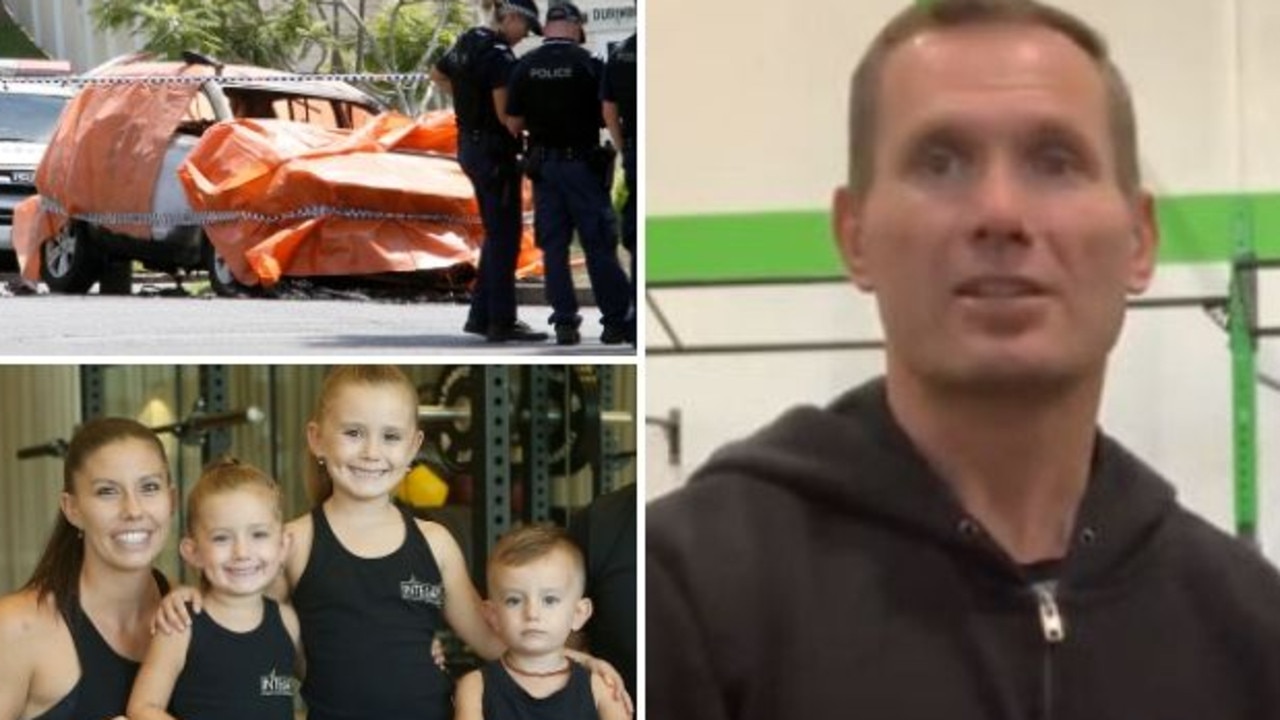
WHERE TO NOW FOR POLICY-MAKERS AND LEADERS
AS the initial shock and anger fades, sector professionals, anti-violence advocates, media and the community will question whether or not governments are going far enough to provide safety nets for victims and behaviour change supports for perpetrators?
On the day Hannah died, the University of NSW issued a shock report into 1800 RESPECT showing calls for help doubled in the past few years.
Many victims, the researchers found, were being left out in the cold because the national domestic and sexual violence service is simply ill-equipped to deal with "complex" cases and the "unprecedented" demand for support.
Domestic violence is a many-faceted experience, it is complex by nature and is often exacerbated by a range of issues including - but not limited to - women not being able to afford expensive legal fees, single mums struggling to survive on low incomes, women and children needing appropriate safe and secure housing, negotiating the arduos family law and child support systems and trying to co-parent with abusive partners.
Federal Social Services Minister Anne Ruston says she recognises there is an issue with 1800 RESPECT's inability to always respond appropriately, so the helpline's multi-million-dollar contract - currently held by Medibank - will be put out to tender in the hope this will improve matters.
"We are absolutely committed to ensuring 1800 RESPECT is able to continue providing the highest quality support for all Australians affected by domestic, family and sexual violence," she says.
In response to the Camp Hill killings, the Federal Government will invest a further $2.4 million into behaviour change programs.
"Violence against women and children is abhorrent," Senator Ruston says.
"It is as simple as that and we must never make excuses for these sorts of behaviours."
Last financial year, the Queensland Government dedicated more than $116 million to a range of domestic violence responses including counselling, refuge and temporary accommodation, court and legal support, sexual assault services, post-crisis support and specific programs for Aboriginal and Torres Strait Islander people impacted by domestic violence.
The state's Domestic and Family Violence Prevention Council will meet this coming week and there is no doubt the murders of Hannah and her children will dominate the discussions.
The council is tasked with overseeing Queensland's Domestic and Violence Strategy action plan.
It is co-chair by Kay McGrath - a media icon in Queensland - who says she hopes the Camp Hill tragedy will spark change.
"This will undoubtedly galvanise us (the council) and hopefully the entire community to put an end to such suffering," McGrath posted on Facebook.
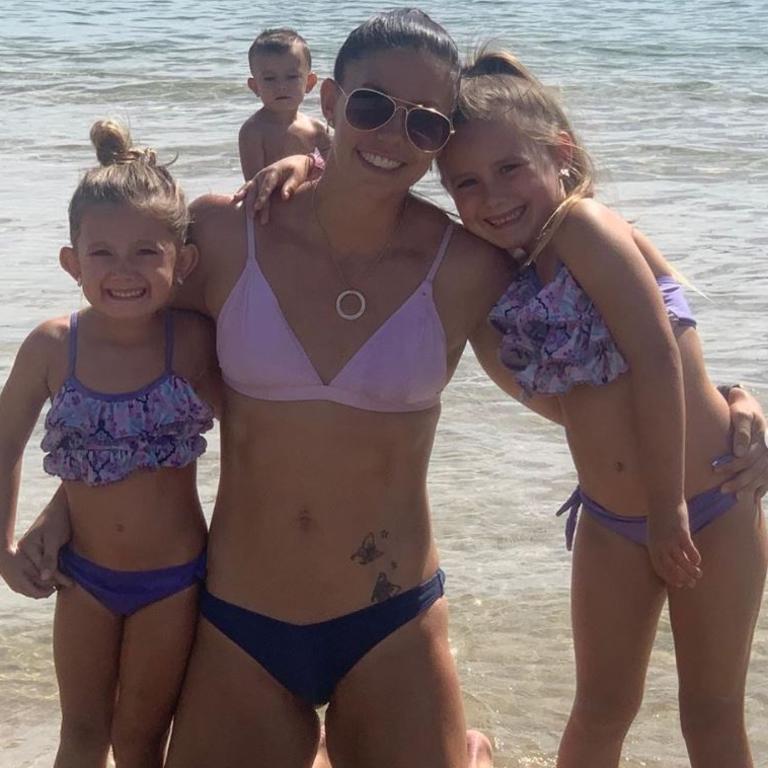
THE LONG ROAD AHEAD FOR A FAMILY IN DESPAIR
REGARDLESS of how Baxter's murderous actions influence public policy - or even public perceptions - one thing is certain.
Hannah's loved ones have a long road ahead, preparing to bury their family members, navigating the police, justice and coronor's court processes and learning to live with the fallout of murder.
"For all those who knew Hannah or those who had even just met her once, they know how much of a beautiful soul she was," Hannah's sister-in-law Stacey Roberts says.
"All she ever wanted was happiness.
"Her children were a reflection of her.
"We will miss them all more than anything."
Hannah's brother Nathanial explains how his sister was so badly burnt that the soles of her feet were only part of her body unmarked by fire.
"They couldn't even get a hand print or anything from her," he says.
"So we want the symbol of her foot to be a symbol for her and her legacy.
"We want to try and start something to help women who are in this situation who have suffered domestic abuse, mentally, physically, sexually."
The movement will be called Small Steps for Hannah.
To donate to Hannah's family, please visit: https://tinyurl.com/wjdpwot
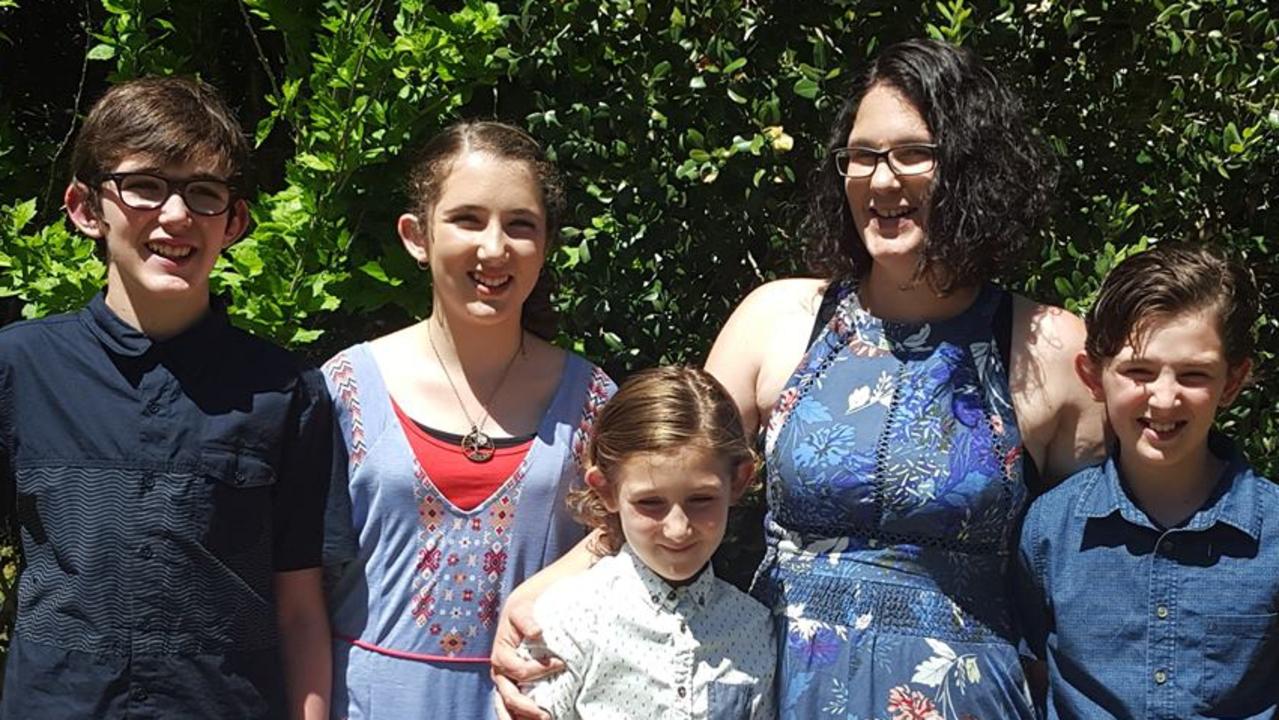
A BRIEF HISTORY OF DOMESTIC VIOLENCE DEATHS IN AUSTRALIA
In Australia, around 52 women and 12 children lose their lives to domestic violence each year. These are just some of the tragedies from the past 20 years.
July 30, 2000: 19-year-old mother-of-one Jacinta Bush was stabbed to death by her partner Kris Slade in a hotel on the Sunshine Coast, Queensland. Slade stabbed Jacinta 47 times with a fishing knife. Slade tried to kill himself but was unsuccessful. Slade was sentenced to life in prison and was eligible for parole in 2015.
February 20, 2007: 18-month-old Joshua Marchetti and his mother 32-year-old Theresa Dominique Marchetti were killed by Errol Graham Hayes, 40. Hayes was Theresa's former partner and Joshua's father. Hayes also murdered Theresa's flatmate Mark Stewart Christensen. Hayes was given three life sentences.
July 28, 2007: Four-year-old Jason Andrew Schaepmann and his 18-month-old brother Riley Tait Schaepmann were bashed to death by their stepfather Brodie Isaac Preston, 19, in Darling Heights, Queensland. Preston was sentenced to 36 years in prison.
March 30, 2010: Mother-of-one and domestic violence fighter Bianca Faith Girven, 22, was strangled to death by her boyfriend Rhys Michael Austin, 22, at a Mt Gravatt lookout. Austin was found to be of unsound mind due to schizophrenia and did not stand trial. He remains in a secure facility.
March 2, 2015: Seven-year-old Jackson Sharpley, his 27-year-old mother Kris-Deann Sharpley and his unborn sister Amber were murdered by Kris-Deann's father Derek Sharpley, 52, at their Darling Downs property. Derek Sharpley then shot himself to death.
May 8, 2011: Five-year-old Kyla Rogers and her mother Tanya Simpson, 31, were murdered by Kyla's father Paul Rogers, 40, on the Gold Coast in Queensland. Rogers also killed 33-year-old Antony Way. Rogers killed Tanya and Antony first then he killed himself and Kyla.
July 5, 2018: 15-year-old Jack Edwards and his 13-year-old sister Jennifer Edwards were shot to death by their father John Edwards, 68, in West Pennant Hills, NSW. Edwards killed himself shortly after.
May 11, 2018: 35-year-old mother-of-four Katrina Miles, her children Taye Cockburn, 13, Rylan Cockburn, 12, Ayre Cockburn, 10, and Kayden Cockburn, 8, and Katrina's mother Cynda Miles, 58, were shot to death by Peter Miles, 61, at their home near Margaret River, WA. Miles, who killed himself, was Cynda's husband, Katrina's father and the grandfather of the children.
December 19, 2014: An unnamed nine-year-old boy, his brothers aged 8, 6 and 5, his sisters aged 11, 12 and 2 and his 14-year-old female cousin were stabbed to death by his 37-year-old mother Raina Mersane Ina Thaiday at a home in Manoora, Queensland. Thaiday was charged with eight counts of murder. While she admitted to the killings, the court found she was of unsound mind and the charges were dropped.
*For 24-hour support in Queensland, phone DVConnect Womensline on 1800 811 811 or MensLine on 1800 600 636; in NSW call NSW Domestic Violence Line on 1800 656 463; or call the national hotline 1800 RESPECT on 1800 737 732. The Suicide Call Back service is on 1300 659 467.
News Corp journalist Sherele Moody has multiple journalism excellence awards for her work highlighting violence in Australia. Sherele is also an Our Watch fellow and the founder of The RED HEART Campaign and the Australian Femicide & Child Death Map.
Originally published as With small steps, we can end the terror at home






